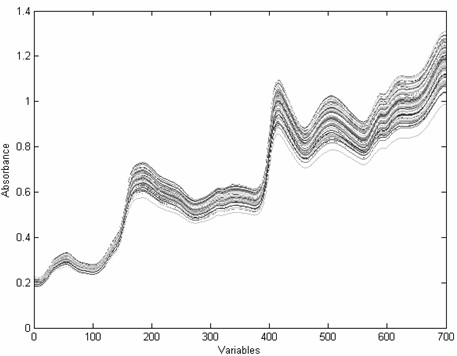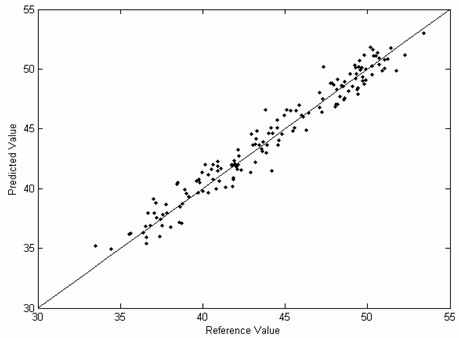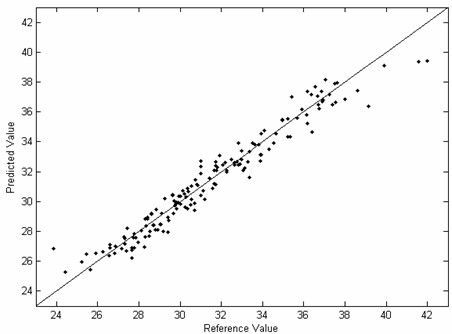A method for rapid and non-destructive analysis of nutritional quality of whole cottonseed based on near-infrared spectroscopy
A near-infrared spectroscopy and non-destructive analysis technology, which is applied in the field of rapid and non-destructive analysis of the nutritional quality of whole cottonseeds based on near-infrared spectroscopy, can solve the problems of consuming chemical reagents, cumbersome sample preparation, and long analysis time, achieving high analysis accuracy and detection Fast speed and improved signal-to-noise ratio
- Summary
- Abstract
- Description
- Claims
- Application Information
AI Technical Summary
Problems solved by technology
Method used
Image
Examples
Embodiment
[0035] 1. Select 385 representative cottonseed materials as the experimental sample set, which were planted in Hainan Sanya, Zhejiang Hangzhou, Zhejiang Jinhua and other ecological planting areas in 2008 and 2009 respectively; 230 samples were selected as the calibration samples of the whole cottonseed The set is used to construct the correction model of the whole cottonseed, and the remaining 155 samples are used as the prediction sample set of the whole cottonseed to evaluate the performance of the correction model of the whole cottonseed;
[0036] 2. In the spectral range with a wavelength of 800-2500nm, use a near-infrared analyzer to scan the whole cottonseed sample, collect the near-infrared reflection spectrum intensity every 2nm, repeat the scan four times for each sample, and take the average spectrum as the whole cottonseed The near-infrared spectral data of the calibration sample set and the near-infrared spectral data of the predicted sample set of whole cottonseed,...
PUM
 Login to View More
Login to View More Abstract
Description
Claims
Application Information
 Login to View More
Login to View More - R&D
- Intellectual Property
- Life Sciences
- Materials
- Tech Scout
- Unparalleled Data Quality
- Higher Quality Content
- 60% Fewer Hallucinations
Browse by: Latest US Patents, China's latest patents, Technical Efficacy Thesaurus, Application Domain, Technology Topic, Popular Technical Reports.
© 2025 PatSnap. All rights reserved.Legal|Privacy policy|Modern Slavery Act Transparency Statement|Sitemap|About US| Contact US: help@patsnap.com



